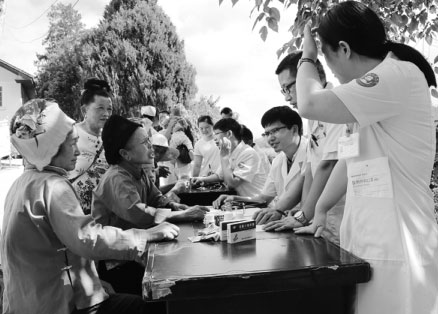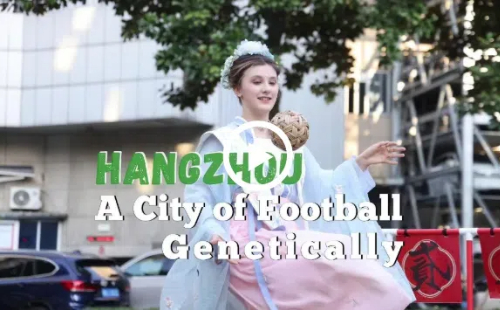Joint hospital effort bolsters treatment

Doctors from Hangzhou, Zhejiang province, and Taijiang county offer free clinic services to villagers of the Miao ethnic group in Taijiang, Guizhou province. [Photo/CHINA DAILY]
Taijiang residents more confident in local center since deal with university
Xie Jinqian was told his kidneys were failing 27 years ago, but he held off having surgery until last year at his local hospital, in impoverished Taijiang county, Guizhou province, because he was worried about the quality of care it offered.
Those concerns were dispelled after the Second Affiliated Hospital of Zhejiang University School of Medicine - one of the top hospitals in Hangzhou, the capital of Zhejiang province - signed an agreement in April 2016 to jointly operate the hospital in Taijiang.
Xie had minimally invasive but high-risk surgery known as a percutaneous nephrostomy - in which a small, flexible tube is inserted through the skin and into a kidney to drain urine - at the county hospital in October last year.
The 53-year-old retired civil servant said his condition has improved significantly since the operation and he now only needs two dialysis sessions a week, down from three.
The surgeon who operated on Xie, Shen Xiaocao, is a senior surgeon from the hospital in Hangzhou and also vice-president of the county hospital.
He said Xie's surgery - the first such operation performed at Taijiang County People's Hospital - was very successful and might mean Xie would no longer need dialysis.
"If Xie recovers well, he will only have to take medicine to help cure his high urea level and control his disease," said Shen, who began working in Taijiang in August last year.
Xie was diagnosed with uremia during a routine health checkup in 1992, but the county hospital's poor standard of treatment and medical facilities, and its lack of skilled, experienced doctors and medical staff made him reluctant to have surgery there.
A medical aid project headed by the Organization Department of the Central Committee of the Communist Party of China that aims to help those in need in rural areas changed his mind when he fell seriously ill last year.
The project led to the agreement between the two hospitals, which has also sent senior doctors from the hospital in Hangzhou to Taijiang each year to train local doctors and improve the level of medical treatment at the county hospital.
Zhejiang University and the hospital in Hangzhou have, between them, invested more than 23 million yuan ($3.3 million) to help the Taijiang hospital purchase advanced medical equipment.





 play
play